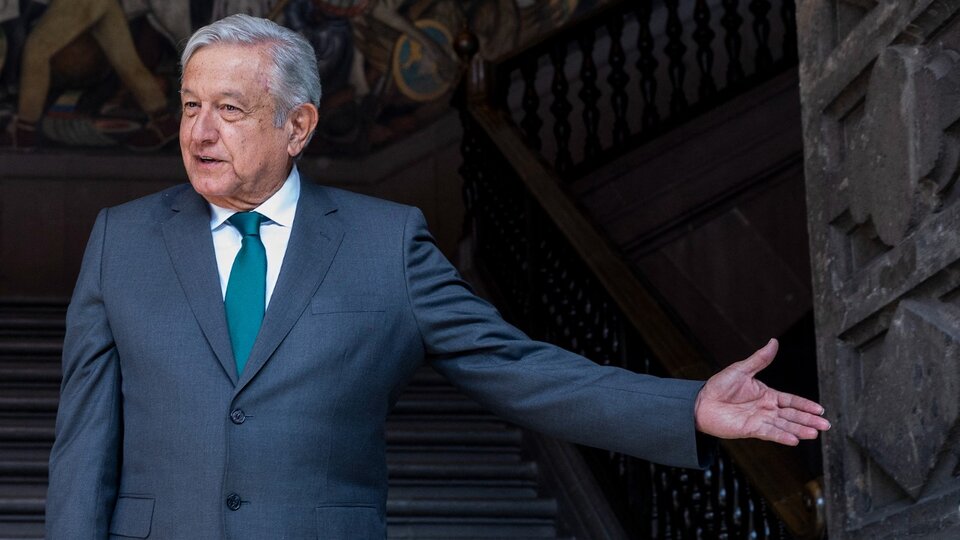
[ad_1]
Last Sunday, elections were held in Peru and Mexico, two key elections for Latin America. One of the most emblematic coincidences between the two, a situation which recurs in other countries of the region, is the emergence of a popular left. It is not a question of the traditional left with an axis in the class struggle, nor of the center-left or of social democracy which would channel a certain will for change.
This national and popular left is manifested with particular clarity in Mexico, represented in the National Regeneration Movement (MORENA) created by López Obrador who left the PRI at the time, the historic revolutionary party, having renounced its founding principles, and he created the PRD with others, from which he also withdrew due to his adaptation to the traditional political system. In Peru, with the candidacy of Professor Pedro Castillo, also in Chile, with the struggles that drove the most marginalized sectors and students out of the traditional structures of the left and progressivism and which culminated in the call for a new constituent, to replace the one it is neither more nor less than the one which is 40 years old and was made at the will of Pinochet and could not be changed even during the socialist governments. Also in Colombia, where a similar phenomenon appears in the resistance.
In Mexico, MORENA and its allies faced the alliance of traditional parties (PAN-PRI-PRD) still enemies and united for this occasion. López Obrador and his allies have taken 10 governorates from the opposition and will thus control 16 states, or half the country. This is an unprecedented territorial breakthrough for a party in power in the midterm elections. They also triumphed in the elections of deputies by obtaining 280 seats out of 500, keeping the majority in the chamber of deputies.
The epic triumph of Professor Pedro Castillo, who will be the next president, took place in Peru. A union leader who led a teachers’ strike in 2017 that shocked Peru, against the union leadership. A leader of the peasant rounds, a traditional formation of the Andes self-defense against state abandonment and which often applies community justice. Castillo claims to be a mariatéguist, following the concepts of the Communist leader who proposed to look at Marxism through Latin American eyes. Member of a plebeian and rural left which represents a very important part of the forgotten, despised, ignored, humiliated people who suffer from structural poverty.
This panorama, to be complete, must be understood in the context in which it takes place: the Latin American peoples are strongly fighting against neoliberal measures. This struggle which has started to crystallize in Chile, and which will surely be transformed into a new constitution to leave the Pinochetista in the past, and this is also evident in the current massive mobilizations throughout Colombia. But, in addition, he has a key point in the growing discredit of Bolsonaro, in a Brazil with the certainty that Lula will be a candidate and his return to the presidency very possible.
Of course, we are in a full combat situation. And it is against the rights that have learned to go hand in hand. Do not make the mistakes that sometimes occur in popular movements when they take paths of disintegration, confusing possible allies or even adversaries with enemies.
The great challenge will be for the popular movement to be up to the task of facing this new great possibility which is opening up in Latin America. With unity, intelligence, space and generosity.
President of the Parlasur Democracy Observatory
.
[ad_2]
Source link
 Naaju Breaking News, Live Updates, Latest Headlines, Viral News, Top Stories, Trending Topics, Videos
Naaju Breaking News, Live Updates, Latest Headlines, Viral News, Top Stories, Trending Topics, Videos